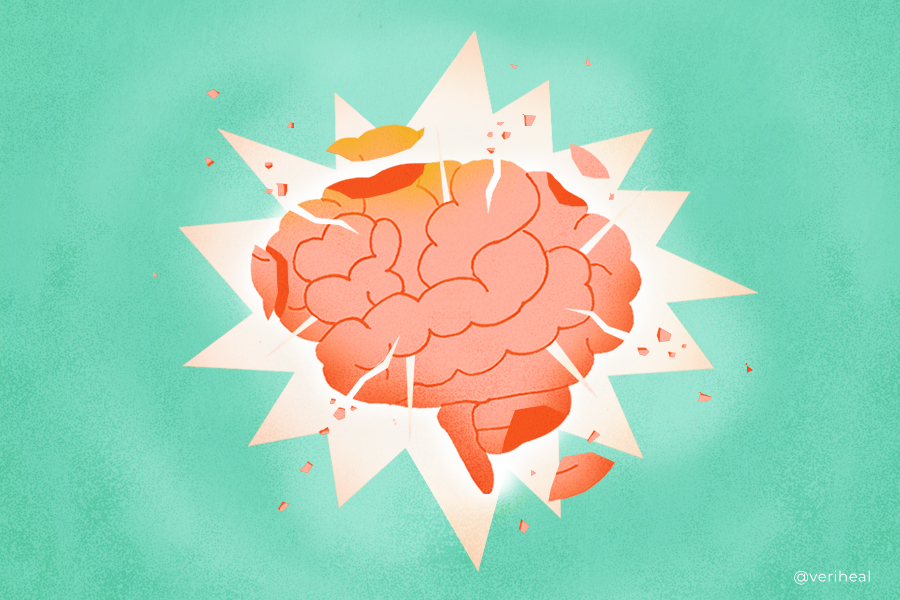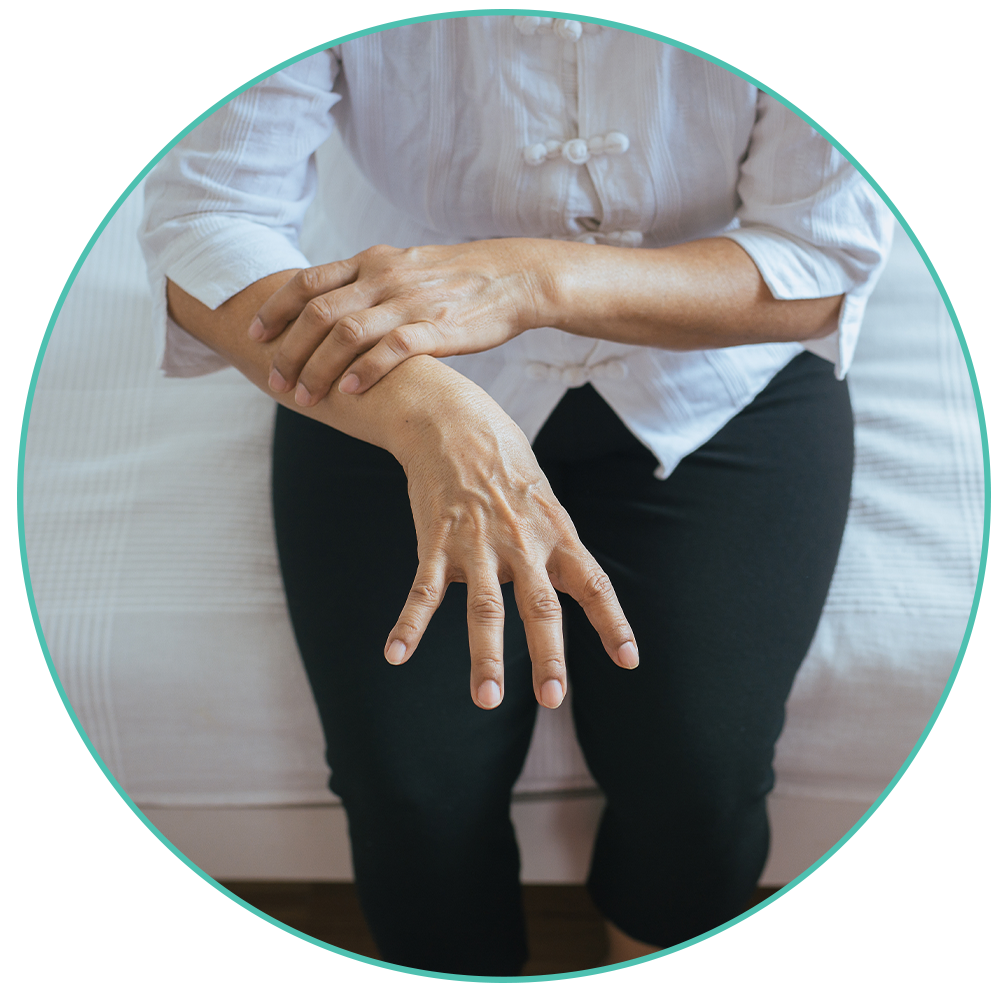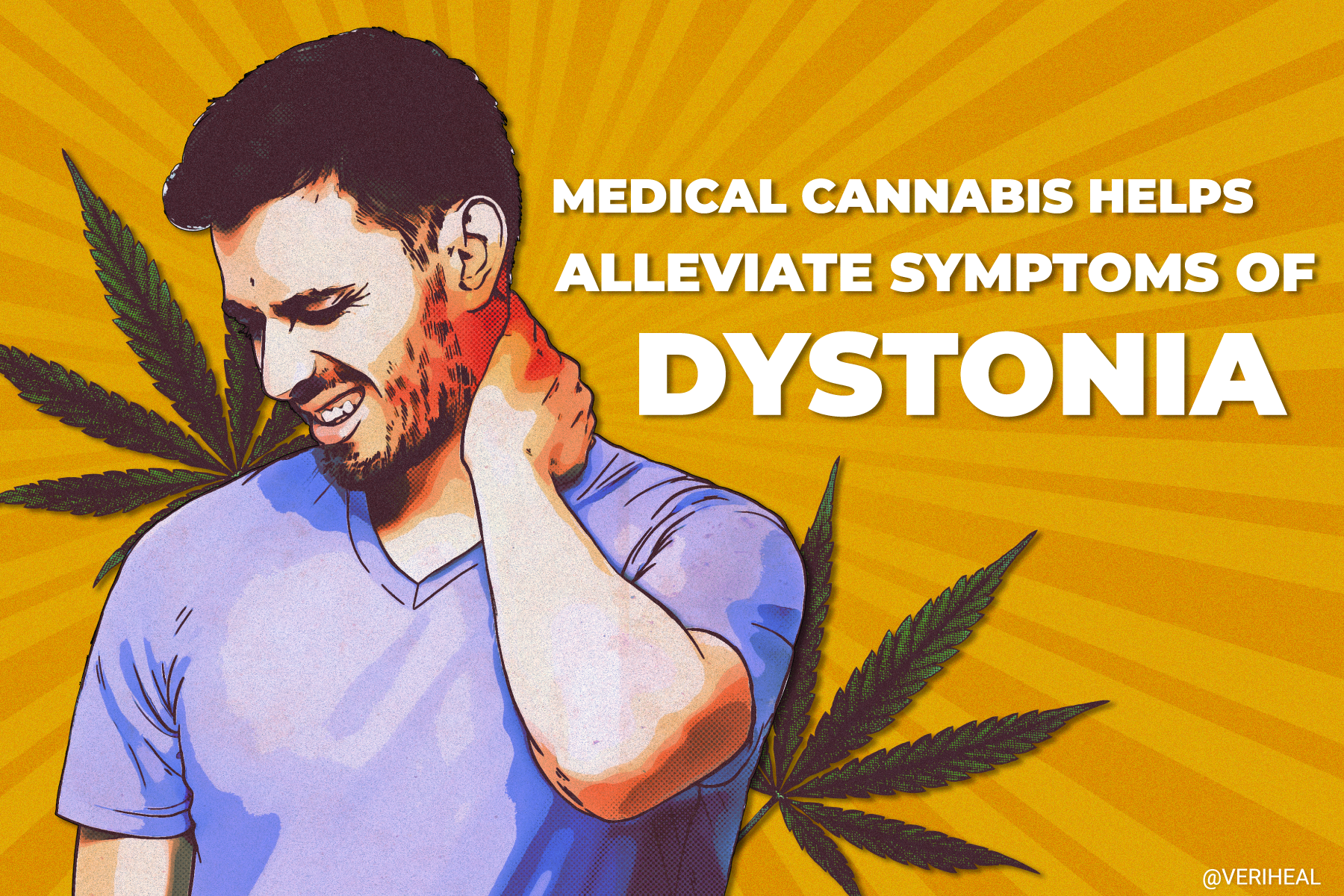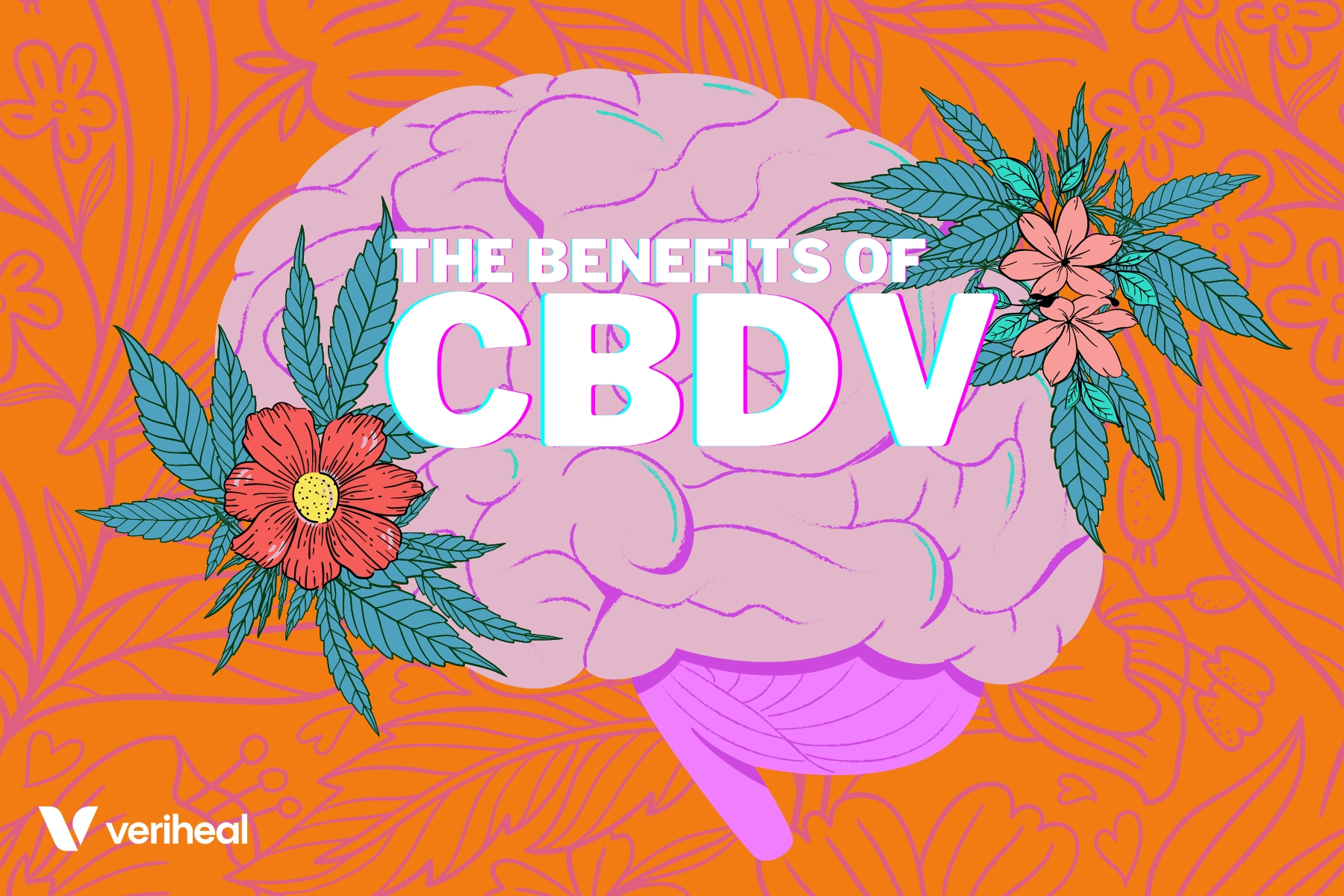Parkinson’s Disease & Medical Marijuana: What is the Connection?

Parkinson’s disease (PD) is a neurodegenerative disorder of the brain that impacts movement. People who develop this chronic movement disorder find it difficult to perform everyday tasks. Although it doesn’t directly cause death, the medical condition can increase a person’s vulnerability to serious comorbid and life-threatening conditions (16).
With medical marijuana legalization transpiring across the United States, there is growing interest in its therapeutic properties for PD patients. Although scientists have not drawn up conclusive evidence that cannabis is beneficial for Parkinson’s, the plant does possess numerous qualities that could help to minimize tremors, muscle spasms, and stiffness. It may also help relieve associated symptoms of depression, anxiety, and insomnia.
The Role of the Endocannabinoid System in Parkinson’s Disease
PD is a chronic and progressive neurodegenerative disorder. Scientists know that it occurs as a result of a pathological protein buildup, which results in the breakdown of midbrain dopaminergic neurons of the substantia nigra pars compacta (SNpc) protruding to the nucleus striatum – a complex nucleus that makes up the largest component of the basal ganglia neuronal circuit (3).
It’s interesting to learn that the components of the endocannabinoid system (ECS) and endocannabinoidome (eCBiome) are expressed at different levels in dopamine circuits and the basal ganglia neural circuit. Here, cannabinoids and endocannabinoids interact with dopaminergic, glutamatergic, and GABAergic signaling systems (8).
Endocannabinoids—naturally occurring, lipid-based neurotransmitters that bind to cannabinoid receptors—modulate synaptic transmission at synapses connecting cortical and striatal neurons (8). In short, this means that endocannabinoids may help determine the critical balance between direct and indirect movement pathways, a balance that is awry in PD.
There is emerging evidence of ECBs playing an essential role in regulating basal ganglia physiology and motor function (8, 10). Experimental and preclinical models of PD demonstrate modifications in ECB signaling after dopamine depletion. This indicates that the development of ECB system-targeting pharmacological compounds could hold promise when used as symptomatic and neuroprotective therapeutic strategies for PD.
What Does The Research Say?
The Parkinson’s Foundation, in conjunction with Northwestern University, conducted a physician survey and found that “physicians reported that 80% of their people with PD have used cannabis.” Unfortunately, since most physicians have not been educated on medical cannabis, only 10% have recommended the use of cannabis to people with PD (12).
According to a 2019 clinical trial review published in Cureus, “Medical marijuana has been observed to improve both motor and non-motor symptoms including bradykinesia, rigidity, tremor, sleep, and pain (20).” They also found evidence to support improvements in mood, depression, and disability. However, they also noted that these results come from small and likely biased clinical studies and that medical cannabis has short-term and long-term effects including temporary cognitive problems.
It is interesting to note that cannabinoid research on Parkinson’s disease has also been used to help patients with amyloidosis and Alzheimer’s Disease. All three of these conditions have been shown to involve a build-up of amyloid proteins which causes damage to the nervous system.
Please check out our amyloidosis and Alzheimer’s Disease pages for more information on the role cannabinoids play in targeting amyloid buildups.
What Preparations of Cannabis are Best for Parkinson’s Disease?
If you or a loved one is considering trying cannabis to ease your nervous system symptoms of PD, you will be pleased to learn that the use of cannabis doesn’t have to involve smoking. One of the main perks associated with medical cannabis consumption is the diversity in product choice.
Examples of the cannabis preparations available for people with PD include:
- Edibles
- Pills, capsules, and tablets
- Powdered cannabis
- Transdermal patches
- Vapes
- Tinctures
- Suppositories (vaginal or rectal)
Medical Cannabis Tips From Dr. Benavides
“People with Parkinson’s disease may have difficulty self-administering medical cannabis formulations, especially when taken twice a day or more. Caretakers should consider the easiest ways to measure and deliver cannabinoids such as via edibles, tinctures, and suppositories. Finding the most convenient methods will make it easier to give to your loved one and stick to it in the long run,” according to Veriheal cannabis coach and medical reviewer Dr. Abraham Benavides.
Important Notes about Cannabinoids & Parkinson’s Disease
Remember that herbs and supplements, such as those produced using the cannabis plant, are not strictly regulated or approved by the Food and Drug Administration (FDA). Supplements that the FDA does not monitor have not been studied as a safe and effective treatment of Parkinson, nor are their strength and purity guaranteed.
Plus, it’s important to remember that cannabis products containing the psychoactive compound Δ9-tetrahydrocannabinol (THC) may cause mind-altering effects, additional motor discoordination, and undesirable cognitive impairment. Caregivers should be cautious when giving THC to PD patients as it could increase their risk of falling or accidents.
In contrast, products containing the non-psychoactive compound cannabidiol (CBD) have fewer side effects. The potentially adverse effects of THC include drowsiness, heightened senses, confusion, slowed reactions, and impaired memory. Minor cannabinoids like cannabinol (CBN) may be able to help with insomnia especially when added to other cannabinoids like THC (24).
Parkinson’s Disease: Disease Symptoms, Signs, & Types
Parkinson’s disease was first introduced into medical literature in 1817 when James Parkinson published An Essay on the Shaking Palsy (15). It was groundbreaking at the time because it tied together many PD symptoms into one diagnosis that was previously thought to be all separate diseases due to symptoms progressing slowly at different rates (9).
This is why it can be challenging to spot the early signs of Parkinson’s disease or Parkinsonism because symptoms usually come on insidiously. Parkinsonism is a general term that includes other conditions with features of Parkinson’s disease. They fall into three categories: idiopathic, vascular parkinsonism, and drug-induced parkinsonism. Only about 10% of PD cases have a clear genetic cause, tending to appear in younger people (27).
However, there are several main movement symptoms to look out for slow movements, tremors in the arms, head, legs, and jaw, impaired balance and coordination, and muscle stiffness and contractions (19).
Many patients report tremors starting in one hand, but tremors may also occur in the limbs. Often the starting hand will get worse than the rest of the limbs after it spreads. It is also common for PD patients to perform unconscious movements known as dyskinesia, such as smiling, blinking, or swinging their arms while walking. Stooped posture is another symptom of Parkinson’s (19).
Aside from the movement symptoms, patients may also experience non-movement symptoms, including depression and emotional issues, skin problems, sleep disturbances, speech impairment, writing changes, urinary problems, constipation, and difficulty chewing, speaking, and/or swallowing (18).
Causes of Parkinson’s Disease
The root cause of Parkinson’s disease is when important nerve cells in a specific part of the brain, called the basal ganglia, begin to die off. These neurons are responsible for producing dopamine, a neurotransmitter known for its role in mood regulation (19).
Changes tend to occur in PD patients’ brains, including Lewy bodies—protein deposits (of alpha-synuclein) that abnormally accumulate in nerve cells of brain regions responsible for memory, movement (motor control), and thinking (11).
Several environmental and genetic factors may contribute to developing Parkinsonism. Contributing environmental factors include exposure to pesticides, herbicides, industrial settings, chemicals, and heavy metals (2).
Researchers have also pinpointed certain genetic changes that can spark the onset of Parkinson’s disease, such as mutations in the LRRK2, PARK7, PINK1, PRKN, or SNCA gene although there could be other unknown ones (14).
Regardless of why someone gets Parkinson’s, every patient experiences the critical loss of dopamine in the brain. Some other risk factors for Parkinson’s include:
- Age: Age remains the primary risk factor for developing PD (23). The disease usually transpires in middle or late life, with the risk increasing as a person ages. Typically, people aged 60 or older face a higher risk of PD.
- Hereditary: It is not common for young adults to develop Parkinson’s disease unless there is a genetic cause. Gene changes or mutations can be inherited or passed down from one generation to another (6). Certain ethnic groups carry PD genes more than others. Many studies report the highest prevalence in white populations, followed by Asians and people of African descent (26).
- Geographical Location: The location in which a person resides is a stronger determinant of PD risk than ethnicity. For example, the prevalence of PD in Black Africans residing in sub-Saharan Africa (40/100,000) is significantly lower than it is for Africans living in the United States (4). A recent 2022 study demonstrates how PD incidence rates are higher in certain US geographic regions including the “Rust Belt,” Southern California, Southeastern Texas, Central Pennsylvania, and Florida (25).
- Sex: Biological men have a 50% higher risk of developing PD than biological females (18). However, male-to-female ratios increase with age, with one study showing that the risk elevates as women get older (13).
Parkinson’s Disease Treatments
Every person with Parkinson’s should consult with their healthcare providers, including a neurologist to determine which treatment options are best for them. Since the symptoms are usually caused by dopamine loss in the brain, most PD drugs are designed to enhance the actions of dopamine or temporarily replace lost dopamine. Drugs of this kind are known as dopaminergic medications.
Most dopaminergic medications relieve muscle rigidity, enhance movement coordination, reduce tremors, and improve speed for patients with slowed reactions. Some of the most commonly prescribed dopaminergic medications include (21):
- Amantadine
- Adenosine A2A antagonists
- Anticholinergic drugs
- COMT Inhibitors
- Dopamine agonists
- Levodopa (alone or in combination with carbidopa and other drugs)
- MAO-B inhibitors
Surgical or procedural treatment options include Deep Brain Stimulation (DBS), but it is very expensive and the long-term benefits are debatable (5, 27). Additionally, patients may also be prescribed a cabinet of other medications to deal with comorbid conditions and symptoms like depression, anxiety, erectile dysfunction, insomnia, fatigue, restless legs syndrome (RLS), and antipsychotics if hallucinations are present (27).
Optimal treatment of Parkinson‘s really depends on a multimodal approach of medications and physical therapies. Physical, occupational, and speech therapies may also prove useful for people who endure the life-disrupting symptoms of PD, but each case is different, so there is no one-size-fits-all approach.
The drawback of dopaminergic medications is that they may initially be effective but over time they may cause a host of side effects and eventually require much larger dosing. The most common side effects of dopaminergic drugs as being in three categories: augmentation (of doses), compulsive behavior (e.g. excessive shopping, gambling), and sleepiness (22).
That being said, dopaminergic drugs are still the most efficacious and FDA-approved drugs for Parkinson’s today so they should not be stopped or adjusted unless directed by your doctor.
Note: Veriheal does not intend to give this as professional medical advice. Do not attempt to self-diagnose, or prescribe treatment based on the information provided on this page. Always consult a physician before making any decision on the treatment of a medical condition.
1. 12 Healthy Foods High in Antioxidants. (n.d.). Retrieved April 16, 2023, from https://www.healthline.com/nutrition/foods-high-in-antioxidants
2. Ball, N., Teo, W.-P., Chandra, S., & Chapman, J. (2019). Parkinson’s Disease and the Environment. Frontiers in Neurology, 10, 218. https://doi.org/10.3389/fneur.2019.00218
3. Basal Ganglia. (n.d.). Physiopedia. Retrieved April 16, 2023, from https://www.physio-pedia.com/Basal_Ganglia
4. Ben-Joseph, A., Marshall, C. R., Lees, A. J., & Noyce, A. J. (n.d.). Ethnic Variation in the Manifestation of Parkinson’s Disease: A Narrative Review. Journal of Parkinson’s Disease, 10(1), 31–45. https://doi.org/10.3233/JPD-191763
5. Deep Brain Stimulation (DBS) | Parkinson’s Foundation. (n.d.). Retrieved April 16, 2023, from https://www.parkinson.org/living-with-parkinsons/treatment/surgical-treatment-options/deep-brain-stimulation
6. Genetics & Parkinson’s | Parkinson’s Foundation. (n.d.). Retrieved April 16, 2023, from https://www.parkinson.org/understanding-parkinsons/causes/genetics
7. Goetz, C. G. (2011). The History of Parkinson’s Disease: Early Clinical Descriptions and Neurological Therapies. Cold Spring Harbor Perspectives in Medicine:, 1(1), a008862. https://doi.org/10.1101/cshperspect.a008862
8. Gorodetski, L., Loewenstern, Y., Faynveitz, A., Bar-Gad, I., Blackwell, K. T., & Korngreen, A. (2021). Endocannabinoids and Dopamine Balance Basal Ganglia Output. Frontiers in Cellular Neuroscience, 15, 639082. https://doi.org/10.3389/fncel.2021.639082
9. Hurwitz, B. (2014). Urban Observation and Sentiment in James Parkinson’s Essay on the Shaking Palsy (1817). Literature and Medicine, 74–104. https://www.ncbi.nlm.nih.gov/pmc/articles/PMC4077538/
10. Kreitzer, A. C., & Malenka, R. C. (2007). Endocannabinoid-mediated rescue of striatal LTD and motor deficits in Parkinson’s disease models. Nature, 445(7128), 643–647. https://doi.org/10.1038/nature05506
11. Lewy body dementia and Parkinson’s disease. (2021, May 27). https://www.medicalnewstoday.com/articles/lewy-body-parkinsons
12. Medical Marijuana | Parkinson’s Foundation. (n.d.). Retrieved April 16, 2023, from https://www.parkinson.org/living-with-parkinsons/treatment/medical-marijuana
13. Moisan, F., Kab, S., Mohamed, F., Canonico, M., Guern, M. L., Quintin, C., Carcaillon, L., Nicolau, J., Duport, N., Singh-Manoux, A., Boussac-Zarebska, M., & Elbaz, A. (2016). Parkinson disease male-to-female ratios increase with age: French nationwide study and meta-analysis. Journal of Neurology, Neurosurgery & Psychiatry, 87(9), 952–957. https://doi.org/10.1136/jnnp-2015-312283
14. Parkinson disease: MedlinePlus Genetics. (n.d.). Retrieved April 16, 2023, from https://medlineplus.gov/genetics/condition/parkinson-disease/
15. Parkinson, J. (2002). An Essay on the Shaking Palsy. The Journal of Neuropsychiatry and Clinical Neurosciences, 14(2), 223–236. https://doi.org/10.1176/jnp.14.2.223
16. Parkinson’s disease. (2017, October 23). Nhs.Uk. https://www.nhs.uk/conditions/parkinsons-disease/
17. Parkinson’s Disease Alternative Treatments. (n.d.). Retrieved April 16, 2023, from https://www.webmd.com/parkinsons-disease/guide/alternative-treatments-parkinsons
18. Parkinson’s Disease: Causes, Symptoms, and Treatments. (n.d.). National Institute on Aging. Retrieved April 16, 2023, from https://www.nia.nih.gov/health/parkinsons-disease
19. Parkinson’s disease—Symptoms and causes. (n.d.). Mayo Clinic. Retrieved April 16, 2023, from https://www.mayoclinic.org/diseases-conditions/parkinsons-disease/symptoms-causes/syc-20376055
20. Patel, R. S., Kamil, S., Shah, M. R., Bhimanadham, N. N., & Imran, S. (n.d.). Pros and Cons of Marijuana in Treatment of Parkinson’s Disease. Cureus, 11(6), e4813. https://doi.org/10.7759/cureus.4813
21. Prescription Medications | Parkinson’s Foundation. (n.d.). Retrieved April 16, 2023, from https://www.parkinson.org/living-with-parkinsons/treatment/prescription-medications
22. Restless Legs Syndrome (RLS). (2023, February 3). https://www.hopkinsmedicine.org/health/conditions-and-diseases/restless-legs-syndrome-rls
23. Statistics | Parkinson’s Foundation. (n.d.). Retrieved April 16, 2023, from https://www.parkinson.org/understanding-parkinsons/statistics
24. Walsh, K. B., McKinney, A. E., & Holmes, A. E. (2021). Minor Cannabinoids: Biosynthesis, Molecular Pharmacology and Potential Therapeutic Uses. Frontiers in Pharmacology, 12, 777804. https://doi.org/10.3389/fphar.2021.777804
25. Willis, A. W., Roberts, E., Beck, J. C., Fiske, B., Ross, W., Savica, R., Van Den Eeden, S. K., Tanner, C. M., & Marras, C. (2022). Incidence of Parkinson disease in North America. Npj Parkinson’s Disease, 8(1), Article 1. https://doi.org/10.1038/s41531-022-00410-y
26. Wright Willis, A., Evanoff, B. A., Lian, M., Criswell, S. R., & Racette, B. A. (2010). Geographic and Ethnic Variation in Parkinson Disease: A Population-Based Study of US Medicare Beneficiaries. Neuroepidemiology, 34(3), 143–151. https://doi.org/10.1159/000275491
27. Zafar, S., & Yaddanapudi, S. S. (2023). Parkinson Disease. In StatPearls. StatPearls Publishing. http://www.ncbi.nlm.nih.gov/books/NBK470193/

















